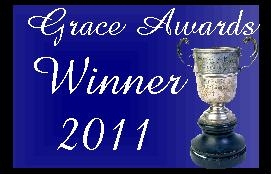Remember this from a few weeks ago? I love it, not just for the idea it presents, but also for the way it presents that idea. It’s new, different, and original, and I wish I’d been clever enough to write it.
Here’s another one:
Again, new, different, original.
This description of a library grabs the reader’s imagination and presents a truth uniquely stated.
Notice the contrast between the words “decaying,” “disintegrating,” “forgotten,” and the concept of it all smelling like a “dessert,” “sweet, “figs,” “vanilla.” Glue, of course. And cleverness. Isn’t that something? By association, cleverness is a dessert snack.
Actually, for me, it is. When I hear or read something cleverly written, I tend to want to say it aloud, to taste it and see how it delights my tongue. Once I’ve done that, it never seems to leave me.
Just like one of my favorite similes from suspense queen Lisa Gardner’s Survivors Club. I’ve never forgotten it.
The husband of one of the club members, a woman who had been brutally attacked while he was away “working” one night, tried to soothe her with her favorite flowers and meals.
Here’s what Lisa wrote:
Guilt, she decided, smelled like roses and chicken piccata.
Can you beat that?
I try to. Every time I come across an emotion that I want to milk for all its worth, I try to do something like that. I try to beat Lisa’s best simile with something of my own that is clever and unique and calorie-laden like a sweet dessert.
Most of what goes into a novel is basic writing—you’re imparting information about the plot, characters, setting, action. But sometimes while you write, you have to slow your reader down to make her feel–fear, love, hate, frustration, irony, loneliness, betrayal–so many other emotions common to everyone. Yet, though they’re common to everyone, everyone feels as if they alone are experiencing them. They need someone to put into words the depth and intensity of whatever it is they’re feeling. They’ll read your words, then reread them and think, “Yes. That’s it exactly.” And they’ll seem less alone because they know that you, at least, know their hearts precisely.
Notice that not one example I’ve provide is spot-on. The first doesn’t say, “I want to write about the beauty of September.” The second doesn’t say, “The library smelled old and musty.” Lisa didn’t write, “Her husband felt guilty.” The examples are Master’s Level “Show, Don’t Tell.” This isn’t SDT 101, it’s word artistry at its finest. It’s something to continuously strive for.
Yet, lest we become paralyzed by the challenge or lost in the striving, we need to keep this in mind, also:





















Great post. I’m currently reading Cynthia Ructhi’s latest book, Song of Silence. She is a master at giving visual pictures of emotions. Always when I rad her words I am drawn into the emotion of the story. I hope I can master that technic.
LikeLike
Thanks for the tip on Cynthia’s book. It’s in my TBR pile, but I haven’t gotten to it yet. I’ll have to move it up a little. 😀
LikeLike
Excellent wordsof encouragement this morning.
LikeLike
Glad you’re encouraged!
LikeLike
“Can you beat that?
I try to.”
Hear, hear! That should be the rallying cry of all writers everywhere!
LikeLike
I think so too.
LikeLike
Ah, first you lure us down the path toward perfect prose and then you give us a little slap in the face to wake us up. Perfection is illusive, and thought we must strive for it, we will never achieve it. Oh but to write those perfect words! Sigh. Practice, practice, practice, and maybe then…..
LikeLike
Yep! Practice, practice, practice!
LikeLiked by 1 person